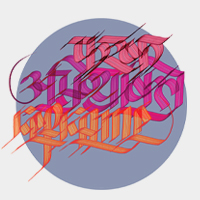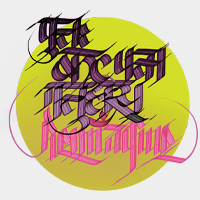
A personal story about a radical shift in perspective
Chime Lama was raised in a Tibetan Buddhist household on a mountaintop in Woodstock, New York, where her father, the Third Bardor Rinpoche and a holder of the lineage of Terchen Barway Dorje (1836–1920), helped establish the Karma Triyana Dharmachakra Buddhist center in the 1970s. Rinpoche taught the Dharma, or Buddhist teachings, all over the world. While growing up, Chime assumed she would follow in his footsteps, perhaps even become a Buddhist nun or a yogini and devote her life to spiritual practice. Her path seemed preordained, and she went on to receive her undergraduate and graduate degrees in Buddhist and Tibetan studies, with the intention of applying those skills in a Dharmic context. “Looking back, I think I may have been too rigid in my idea of the type of life I should lead. Much of this had to do with my fear of embarrassing my family. I feared that if I pursued music or acting, for example, others might say, ‘Why is she doing that? Why doesn’t she serve her father’s center?’ These thoughts put stress on me and prevented me from feeling free.”
Chime was also a budding poet and songwriter, but to pursue her creativity she had to release her old way of thinking. She moved away from her father’s Buddhist center and created a new life in Brooklyn, where she enrolled in an MFA program in poetry. She also moved in with her partner, which meant acknowledging publicly and privately that she was in a committed relationship. “Being that Tibetans are culturally conservative regarding romantic relationships, it did not feel comfortable to make my relationship public, but there was no avoiding it since we would be living together.”
Moving away from Woodstock also meant moving away from what Chime calls her “childlike notions of what a ‘good’ Buddhist life ‘should’ look like.” She had to release attachments to thoughts that were not serving her anymore to make room for a new life. “Moving in with my partner was the first step towards forming a family. We now share a beautiful daughter who we love and adore. I realize that none of this is in opposition with the Dharma. I can be myself and be a good Buddhist.”
Chime attributes many of her struggles to her own misunderstandings, unreasonable expectations, and false restrictions. In fact, she came to understand that the Dharma is adaptable and does not have to appear in any one way. “In truth, I believe part of my struggle has been as basic as allowing myself to be happy. Whether due to aging, experience, or fatigue, I’m now more accepting of the proverbial pat on the back, telling myself, it’s okay to be me.”
About the Contributors
Chime Lama is a writer, translator, and multi-genre artist. She has served as the co-editor-in-chief of the Brooklyn Review and the poetry editor of Yeshe Journal. Her poetry collection, Sphinxlike, is forthcoming from Finishing Line Press.
Howard Kaplan is an editor and writer who helped found Spiral magazine in 2017. He currently works at the Smithsonian and divides his time between Washington, DC, and New York City.
Image Credit
IMAGINE (a.k.a. Sneha Shrestha) is a Nepali artist who incorporates her native language and the aesthetics of Sanskrit scriptures into her work. Her art has been featured in several exhibitions, and her public walls appear across the world from Kathmandu to Boston. The Museum of Fine Arts, Boston, recently acquired her painting Home416, making her the first contemporary Nepali artist to be part of the museum’s collection. Sneha received her master’s from Harvard University.





